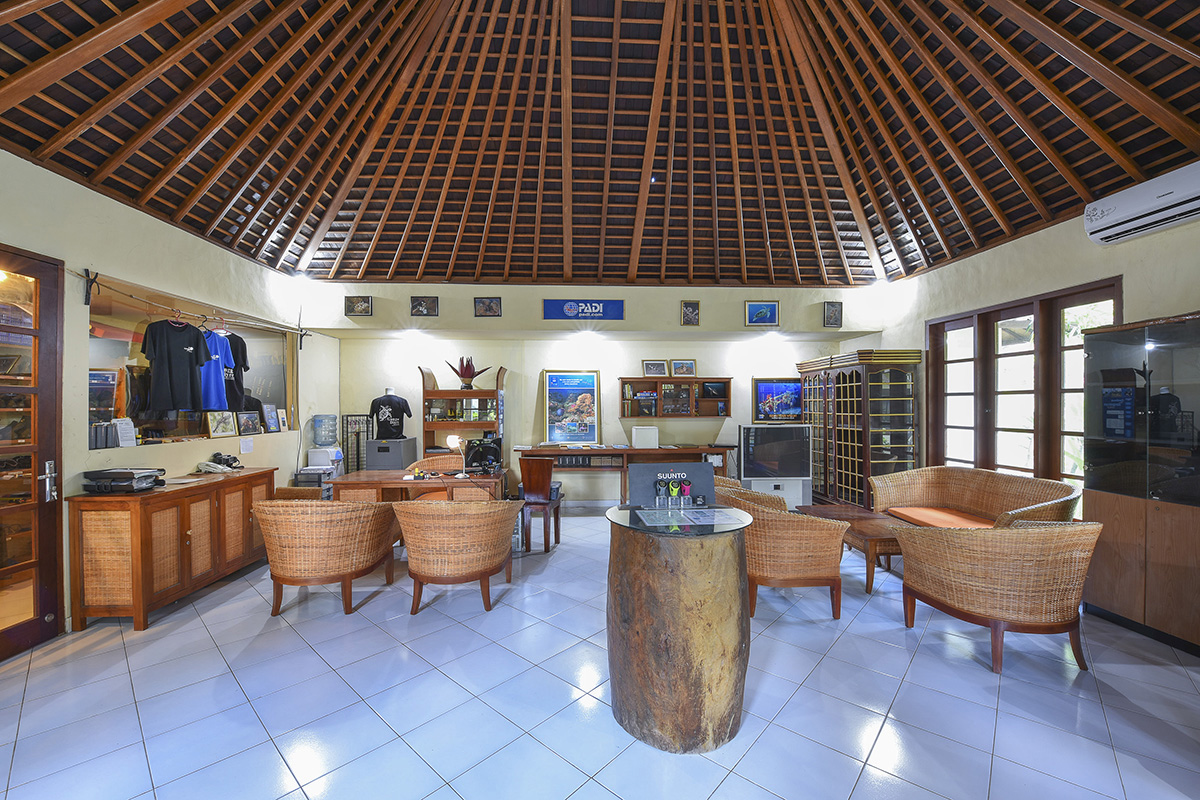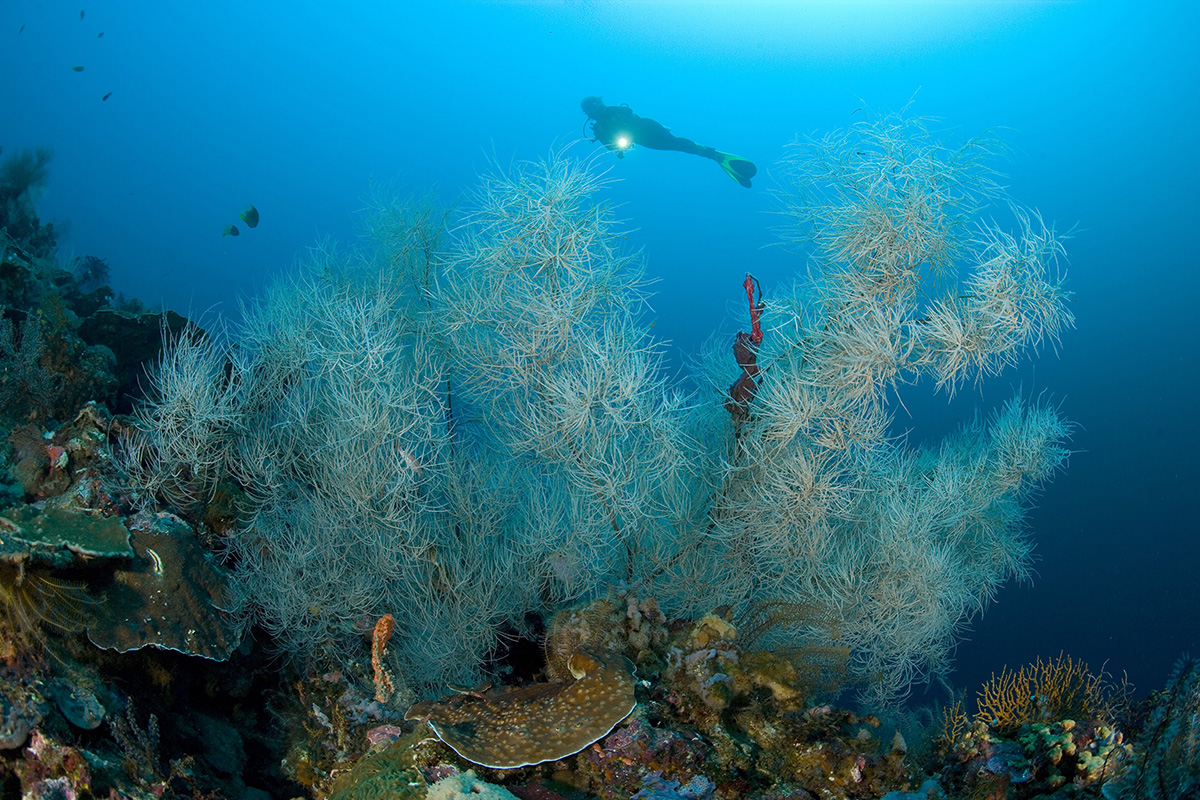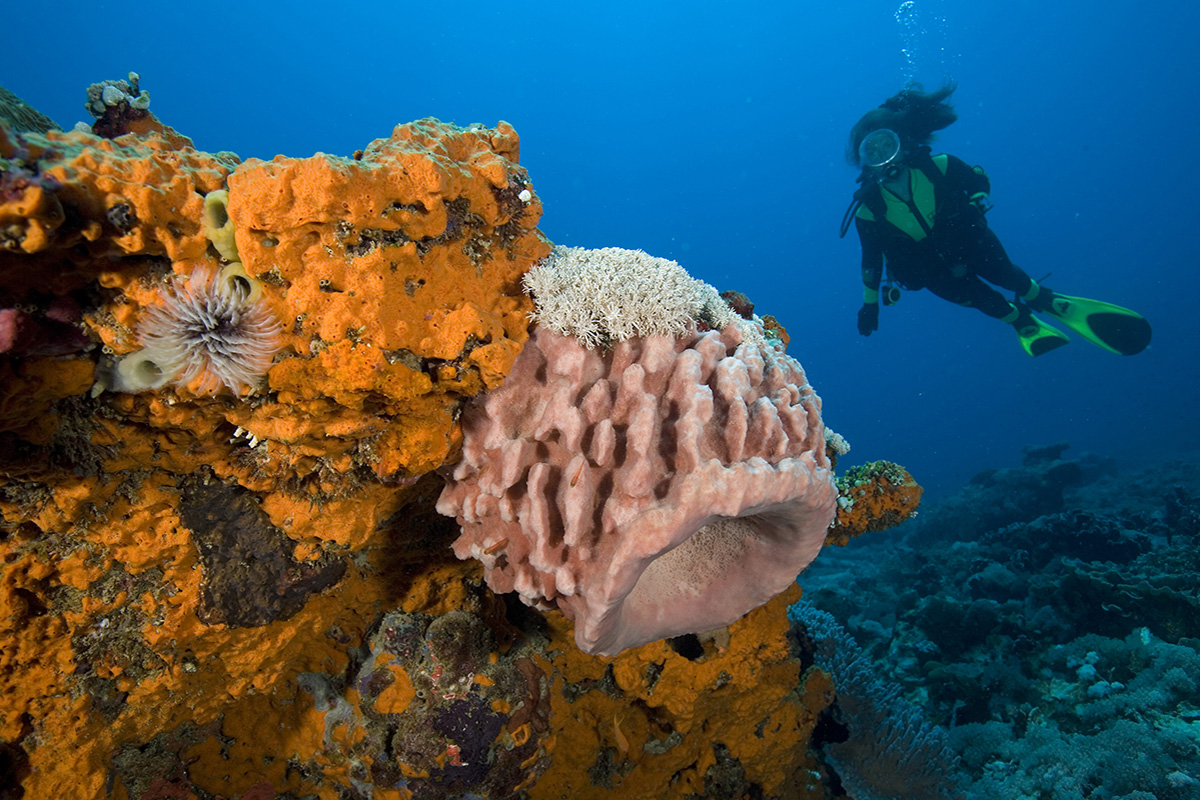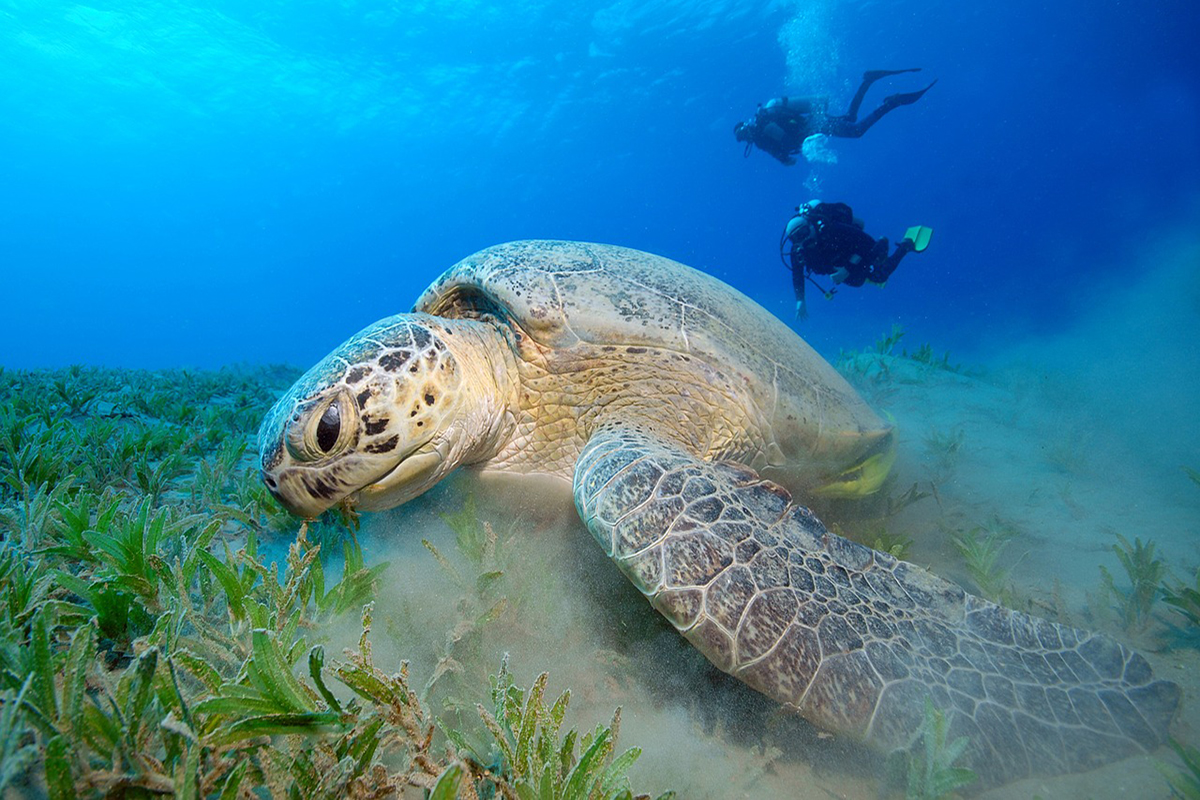Responsible Diving
As divers, we are certainly concerned with marine life and its conservation. These precious ecosystems are easily damaged and human interaction can have far-reaching consequences. This is why it’s so important to be the most responsible diver possible. We have 8 great tips today on how to have as little impact as possible on marine life by being mindful and aware.
Get the right training
No matter what anyone tells you, your dive training and certification is the most important step in starting to dive. You may be offered dive trips without certification, but this is a big mistake. It is dangerous for you, other divers and marine life to dive without being trained right.
Gangga Divers at Villa Almarik offers PADI 5* dive training led by profession instructors and guides. With a PADI certification you can dive anywhere in the world and your guides can feel safe in the knowledge that you are properly equipped to handle yourself and others under the water.
Your instructor’s word is law
You may have hundreds of dives under your belt but your instructor or guide’s directions should be followed at all times. Don’t assume you know better or think that you have enough experience to stray from the plans even a little bit. Dives around Gili Trawangan are carefully planned by Gangga Divers guides to ensure your safety, enjoyment, and the safety of the marine environment.
Speak up
Your instructor’s word might be law but always speak up if you see something you think they may not have seen. It is your responsibility as a diver to protect the reefs. If, for example, you see another diver or guide acting recklessly or damaging the reef, you must say something immediately. Being too shy to say something, or not wanting to be a tattle-tale could result in the harming of the reef or someone getting themselves in a sticky situation.
Use your eyes, not your hands
If you are a diver you will know that marine life is stunning beautiful. This world around you when you dive is so different from that above the water, you may want to reach out and touch things. However, marine environments are very sensitive and there are bacteria and micro-organisms on human skin that can contaminate the reef and fish. Hard corals are especially susceptible to our touch because of the layer of live tissue they often protect themselves with.
Practice control
One of the most important things you will learn during your dive training is buoyancy control. It doesn’t exactly come naturally and can take time to get right. While you are practicing you need to be extra cautious around reefs so you can hover above it without touching it. If you are having trouble with your buoyancy, don’t be afraid to ask you dive instructors or guides to help you get it right.
Equipping yourself
Following on from point 5, getting properly fitting equipment is essential to be able to control your buoyancy. You will need to make sure your wesuit, fins, regulator, pressure gauge, and tanks are well fitting and nothing is hanging loose. You could damage the reef without even realizing if you have anything hanging or dragging. If you have your own gear, try everything on before your dive trip to make sure everything is still well fitting and in good condition. You can also rent from Gangga Divers, but make sure you don’t settle for anything less than a perfect fit if you do.
Leave nothing behind
There is a diving quote saying, “Take only pictures, leave only bubbles”. It may seem totally obvious but you should never ever leave anything in the ocean that doesn’t belong. Your first thought may be “but I would never litter in the ocean”, but do you think about the sunscreen you wear or any body lotions, perfumes or other products that you might be leaving behind? Some of these products might be ok for you but can have devastating effects on coral reefs. Also, you should never feed fish or other marine life. By feeding them you could unknowingly be throwing the whole food chain out of whack. Just remember, leave NOTHING behind but your bubbles.
There is much more to responsible diving than you may first think. You are a guest in marine ecosystems and should respect this during every moment you are under the water. Do you think about these points when you dive? Or perhaps you have other points you would like to add? We’d love to hear from you in the comments below.





